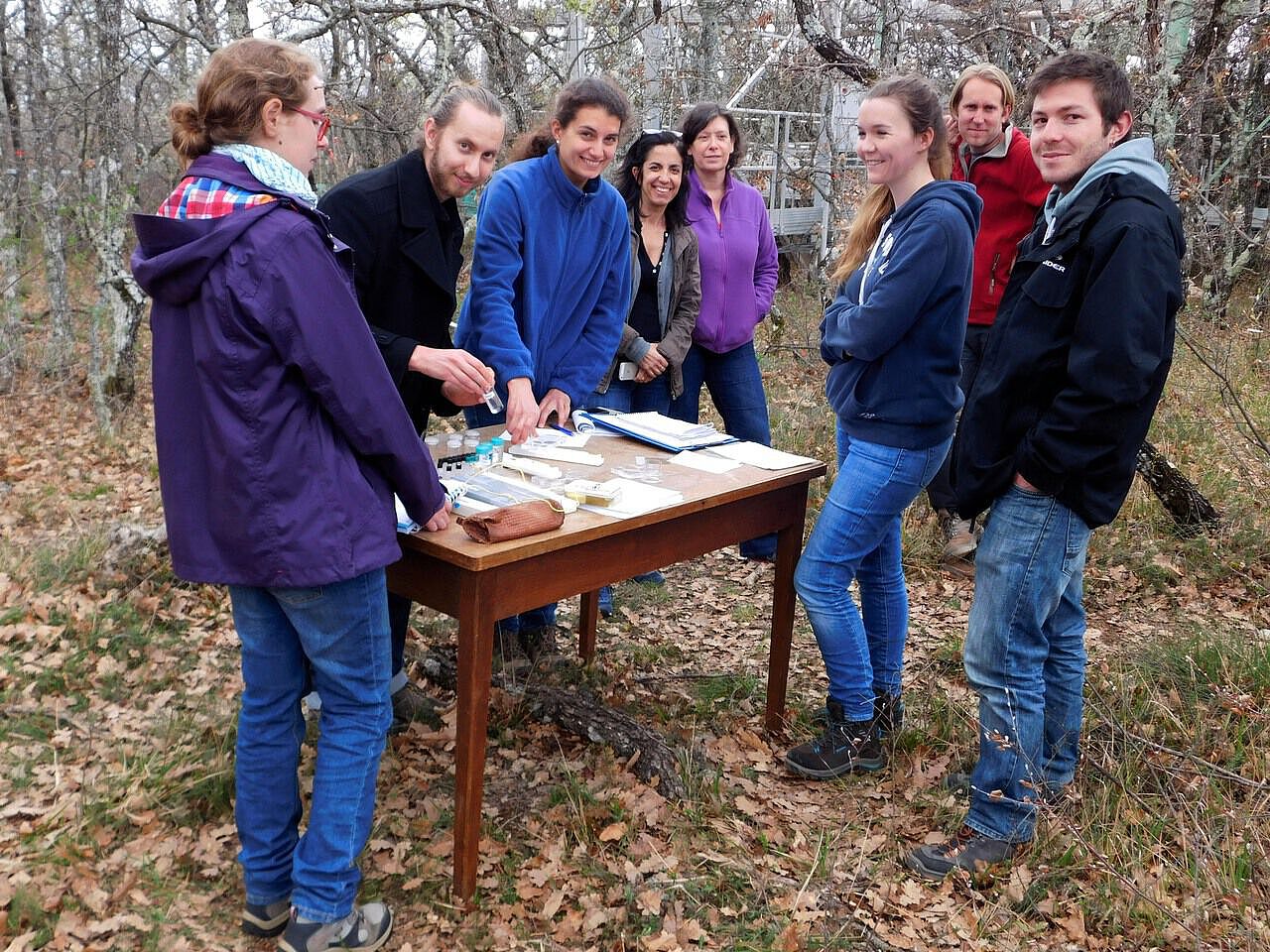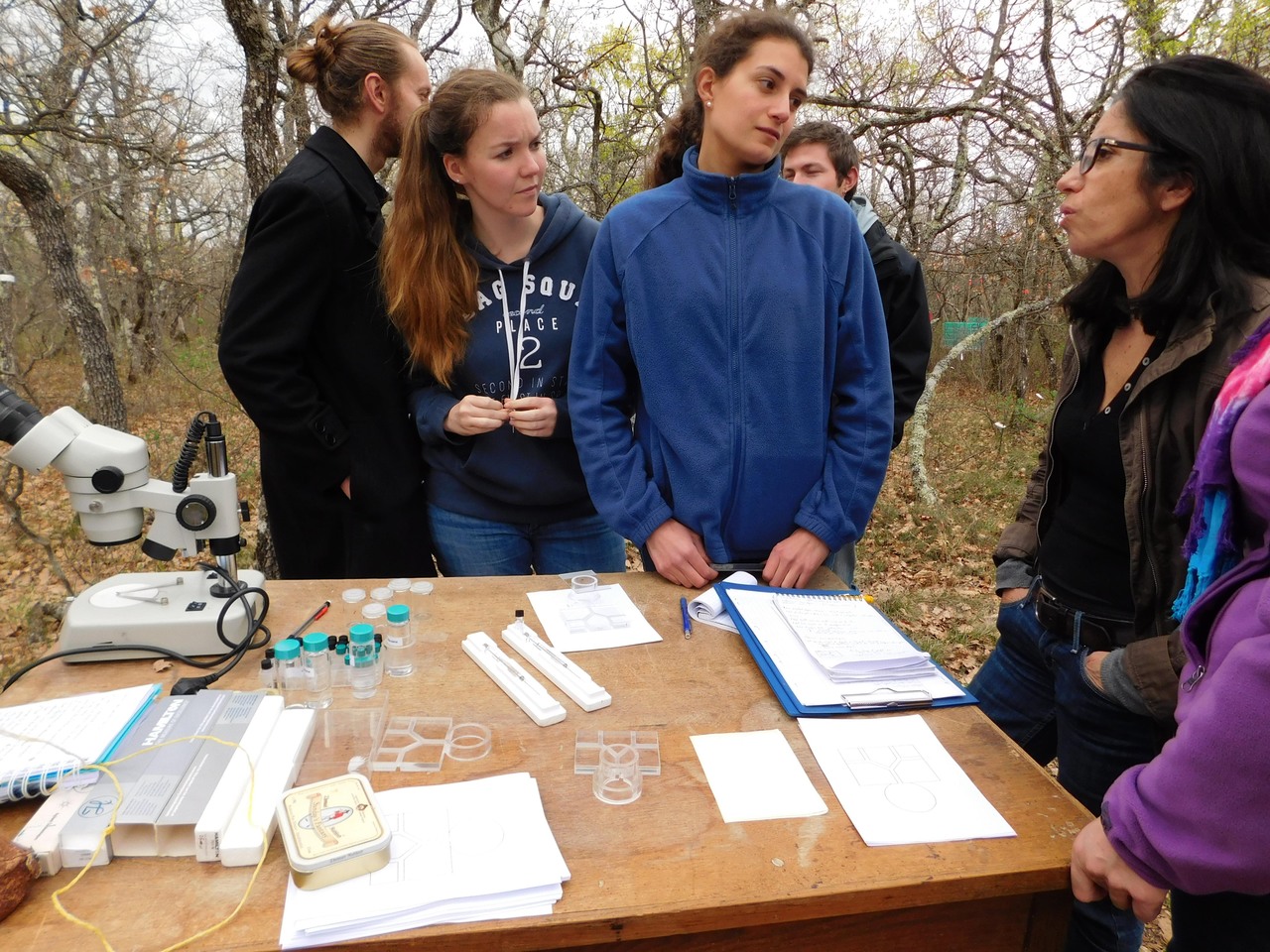Chemical Ecology Mini-Course
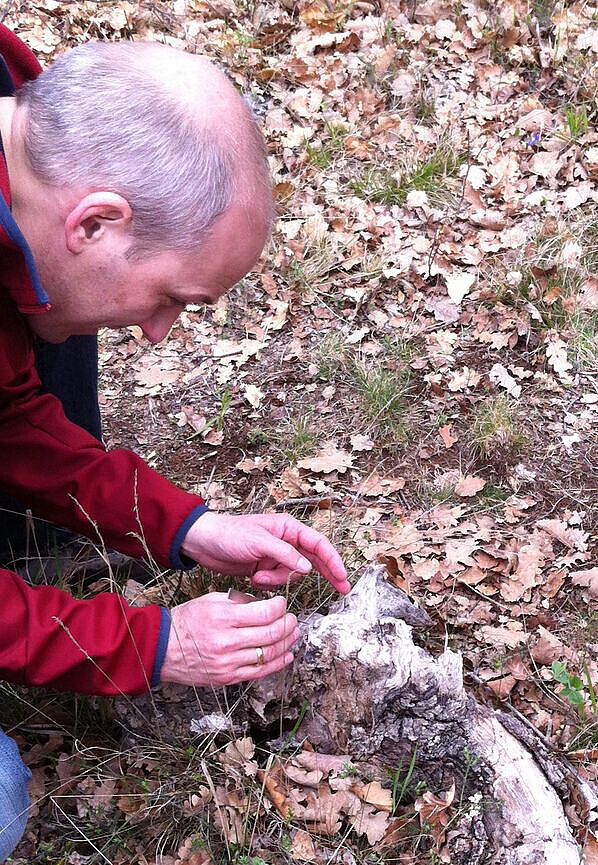
During a visit at the Mediterranean Institute of Biodiversity and Ecology of the University Aix-Marseille between April 4 and 6 2016 Stefan Jarau gave a short introductory course in insect chemical ecology focusing on chemical communication in social bees and ants. The course comprised two lectures dealing with different topics of communication in bees that are well suited to illustrate different means of chemical information use in animals, such as pheromone communication involving innate responses by receivers, or the use of chemical cues that elicit context dependent, learnt behaviors. In practical experiments the students were able to study trail pheromone communication of a native ant species in the field. For that purpose they spent one afternoon at the Oak Forest Observatory Field Station (O3HP) at Saint-Michel l'Observatoire, Provence. The experiments provided an excellent opportunity to demonstrate that studying chemical communication in social insects at first can easily be done in a rather simple "field laboratory" (see photograph below).
PD Dr. Stefan Jarau:
I very much enjoyed my stay at the University Aix-Marseille for two reasons. The researchers and students at the Mediterranean Institute of Biodiversity and Ecology gave me a very warm welcome. In addition, the students attending the course were very motivated and interested in the topics I had presented. Due to their excellent biological knowledge my lectures and field course were not mere teaching activities but rather took place in form of vivid discussions with the students. I came back home with good and new ideas for future research projects.
Experiences
Justine Viros, Master student:
Last April I had the chance to attend Stefan Jarau's course about the role of molecules inside bee and ant colonies in the Aix-Marseille University. It was really interesting. We learnt a lot about the importance of molecules in the creation of food pathways. He was happy to answer all our questions for example about the molecules that will decide if the larvae inside the egg will develop into a queen or a worker. This subject is not studied or taught in our University and it is important that we receive other universities' teachers, so we can learn more about it. Furthermore, the visit of Sefan Jarau strengthens the partnership between the two universities and is a valuable opportunity to both students and teachers.
Prof. Dr. Catherine Fernandez:
Stefan Jarau came to Marseille in the beginning of April with the Erasmus partnership to give a couse about chemical ecology of social insects (particularly bees). We were happy to propose this special course to our master students interested in chemical echology (Master Biodiversity Ecology and Evolution).The students learned the concepts of chemical communications in animals and different types of communication in social bees (nest recognition, defense, queen pheromones, flower odors…) and how to analyze this type of data. We also went on a field trip and did practical work in the OHP forest. Students collected ants and made olfaction tests (with pheromones) directly in the field. Moreover, Stefan Jarau gave a talk on "Chemical Ecology of Social Bees" where more students (Master and PhD), teachers and technicians from Aix-Marseille University participated. The students were very enthusiastic because we don’t have this type of courses in our university.
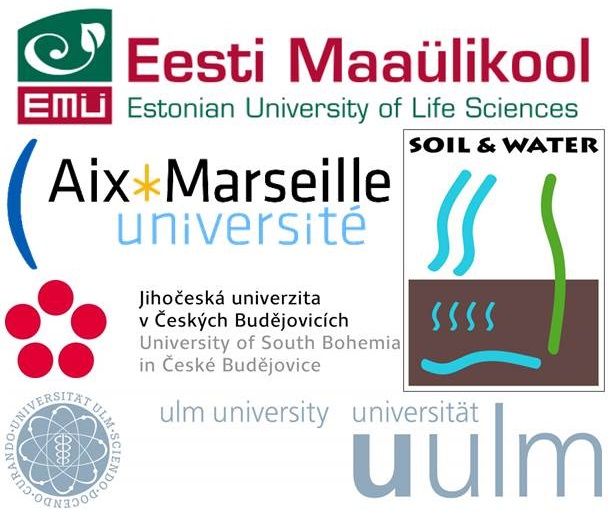

- Dr. Eva Keppner
- eva.keppner(at)uni-ulm.de
- **49-(0)731-50-23317
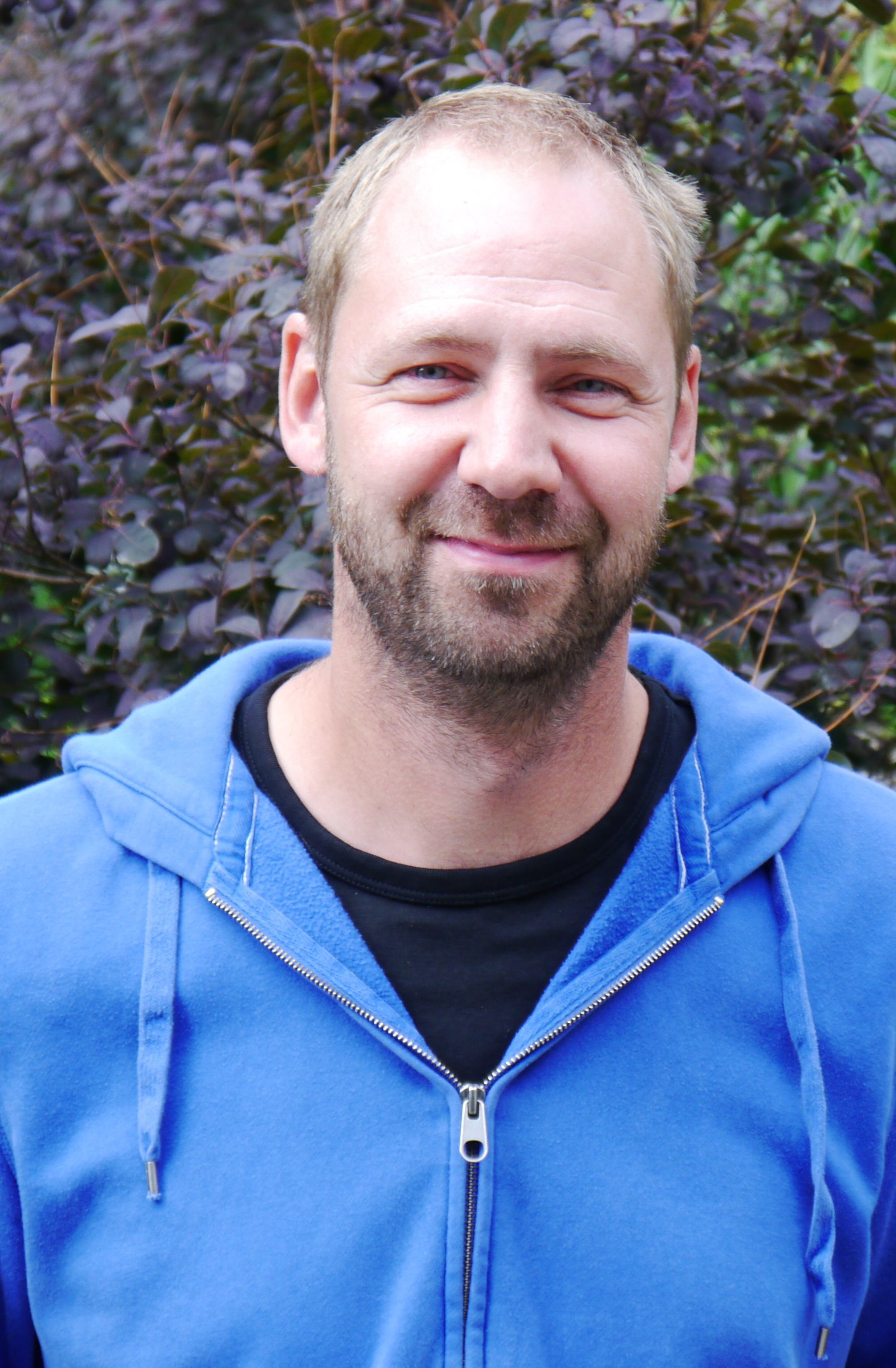
- Dr. Philipp von Wrangell
- philipp.wrangell(at)uni-ulm.de
- **49-(0)731-50-23930
- **49-(0)731-50-23932

“This homepage has been prepared for the European Commission however it reflects the views only of the authors, and the Commission cannot be held responsible for any use which may be made of the information contained therein.”

